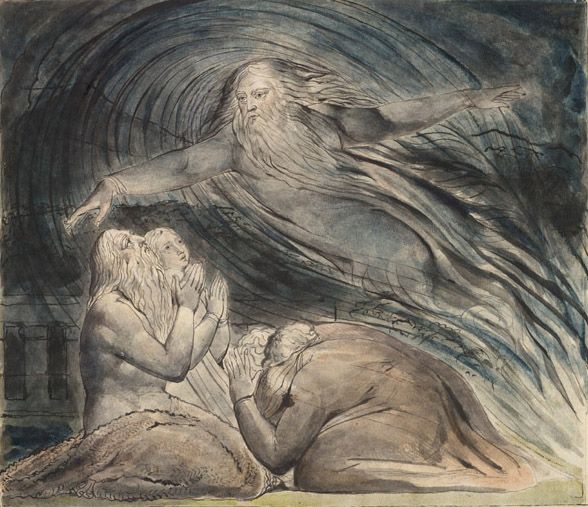Job was the first biblical complainer. The oldest book in the Bible is the story of Job and much of the content make up his complaints. When we think we we’ve been wronged or life doesn’t go the way we planned it, we take to social media to voice our rants and raves, but we have nothing on this man. Our reasons to whine can’t compare with his. Job has the bona fides.
Without warning, Job’s ordered life went into chaos. He lost everything and was reduced to sitting in a pit of ashes; his friends told him that his plight was of his own making; his spouse told him to blame God and commit suicide. All he had left was a broken piece of pottery that he used to scratch the painful sores on his body. What a metaphor: the pain of Job’s broken life alleviated by a broken piece of pottery.
And did Job curse and cry and howl? You bet he did. He cursed his birth. He cursed his bitter life. He cursed his friends calling them, “long-winded, miserable comforters.” (Have any of those friends?) He tried to justify himself. He tried to maintain his innocence. He tried to preserve his integrity as if to say, “I do not deserve this. I am a good person. Life is unfair to me.”
We work so hard to configure our world to protect us from chaos, and when the storms of life blow against us, our true nature is revealed. Are we over-wrought and obsessed, like Job, with preserving our “rightness?” If you can reduce your rant into the number of characters allowed by Twitter, then you probably have little to complain about.
Being right is a mirage of temporary power and comfort. Right beliefs, right behaviors, right feelings, right lifestyles, and keeping company with those like-minded/like-faith people, are erroneous constructs. Job had structured all the right systems and practices to prevent his life from spiraling out of control, but life had different ideas, and Job ended up in the ash pit.
When life does not cooperate with our belief systems, too often we do not humble ourselves. Instead, we whine about life’s unfair treatment and rail against those we want to blame for our ills. This misguided rationale turns the indigent belief of our rightness into self-righteousness, a much harder heart to crack.
Job was a consummate complainer, but he never cursed God. He never walked away from God. And when he finally ran out of complaints, Job saw the wonders of God. He humbled himself and said, “Surely I spoke of things I did not understand, things too wonderful for me to know.” The world is chaotic, and at times, our personal lives get battered and fried by life. But hold on until the wonders of God appear.





